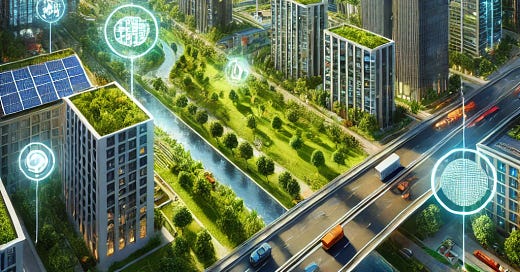Rebuilding Pakistan's Market
Pakistan's real estate market, a cornerstone of the nation's economy, faces challenges from high taxes, rising interest rates, and economic instability.
Pakistan's real estate sector has long been a pillar of the country's economy, but it has recently experienced considerable challenges. High taxes, rising interest rates, and widespread economic insecurity have turned off both domestic and foreign investors. This shrinkage has negatively impacted employment sectors, government revenues, and overall economic development. However, there is still time to revitalise this critical market by implementing creative, technology-driven initiatives that not only revitalise the sector but also promote long-term, sustainable growth and social equity.
Tax Landscape: Reform for Transparency and Fairness
The existing tax structure in Pakistan has become a major deterrent to potential investors. Burdensome taxes, such as the presumed income tax (7E) and the 18.5% non-filer tax, make the market less attractive, deterring investment. A reform of the tax system is critical. Simplifying tax codes and eliminating hurdles like the presumed income tax could lead to a more transparent and efficient market, strengthening investor trust and encouraging documented transactions. This would increase government tax collections in the long term, which is critical for sustainable development (Global Property Guide, 2023).
Interest Rates: Lower Borrowing Costs for Broader Access
Interest rates in Pakistan have surpassed 20%, making borrowing for real estate projects prohibitively expensive. In contrast, India and Bangladesh have interest rates of 6.5% and 5.5%, respectively (Asian Development Bank, 2023). Reducing financing costs would make homes more affordable for the middle class while assisting developers in completing stalled projects. Lower loan rates boost the real estate market and the construction industry, a key job creator (ADB, 2023).
Economic Instability: Tackling Inflation and Currency Depreciation
Inflation reached 29.18% in 2023, significantly reducing purchasing power and discouraging investment (State Bank of Pakistan, 2023). The government must prioritise stabilising inflation and restoring currency value to regain investor confidence. A strong macroeconomic foundation is vital for long-term growth (World Bank, 2025).
Employment and Government Revenues
The collapse of the real estate sector has resulted in massive job losses, particularly in construction, which employs millions (Finance Division Pakistan, 2023). Revitalising the sector could reverse this trend, creating jobs across construction, finance, and real estate services. Judicious investments in real estate have a multiplier effect, benefiting multiple industries (ADB, April 2023).
Embracing Digital Transformation
Digitising land records and introducing online property registration systems could reduce corruption and improve transparency. Turkey's reforms in this area have increased foreign investment by up to 30% (OECD, February 2023). Similar measures in Pakistan would streamline property transactions and attract both local and international investors.
Real Estate Investment Trusts (REITs): Democratising Ownership
REITs enable smaller investors to enter the market without bearing the high costs of direct ownership. Tax breaks and strict regulations in the UAE have made REITs highly successful (Dentons, September 2023). Pakistan can replicate this model to increase inclusivity and encourage both local and international investments.
Harnessing the Power of Overseas Pakistanis
Overseas Pakistanis are an untapped source of capital. The government should offer specialised investment packages and tax breaks to attract them. Aligning these developments with the China-Pakistan Economic Corridor (CPEC) and Special Economic Zones (SEZs) could further enhance investment opportunities.
Sustainability
Green building methods, such as energy-efficient designs and the use of renewable energy sources, would not only reduce environmental impact but also boost property value (World Green Building Council, 2022). Integrating sustainability into real estate policies would align Pakistan with global trends while fostering long-term economic growth.
A Roadmap for the Future
The Special Investment Facilitation Council (SIFC) should lead efforts to streamline policies and attract investment. Policies under Pakistan's Vision 2025 should focus on the real estate sector as a key economic engine, ensuring stability and growth.
Conclusion: A Vision for Revitalisation
Despite existing challenges, Pakistan's real estate sector has significant potential for growth. By implementing progressive reforms, including tax simplification, lower borrowing costs, digital transformation, and sustainability, the sector can thrive. A revitalised real estate market could become a beacon of opportunity, driving both domestic prosperity and foreign investment.
References:
Global Property Guide, 2023
Asian Development Bank, 2023
State Bank of Pakistan, 2023
World Bank, 2022
OECD, 2023
Dubai Financial Market, 2023
Pakistan Bureau of Statistics, 2023
World Green Building Council, 2022




